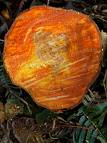Thinleaf Alder Tree Information
Images of Thinleaf Alder:






Thinleaf Alder grows in the following 17 states and provinces:
Alaska, Alberta, Arizona, British Columbia, California, Colorado, Idaho, Manitoba, Montana, Nevada, New Mexico, Oregon, Saskatchewan, Utah, Washington, Wyoming, YukonInformation about Thinleaf Alder:
The Alnus Incana Subsp. Tenuifolia is commonly known as the Mountain Alder, River Alder, Thin-leaved Alder as well as Thinleaf Alder.
Thinleaf alder is a member of a huge circumboreal complex distributed throughout much of North America and Europe. Subtle differences in botanical characteristics exhibited across this plant's wide geographic distribution have caused taxonomic disagreement. Members of the taxon are universally accepted as Alnus incana (L.) Moench, but disagreement exists as to the proper classification below the species level. Currently two classifications which differentiate members of this taxon exist: Alnus incana (L.) Moench - Circumboreal distribution subsp. incana - Old World plants subsp. rugosa (DuRoi) Clausen - New World plants var. rugosa - speckled alder - eastern U.S. and Canada var. occidentalis (Dippel) Hitchcock - thinleaf alder - western U.S. and Canada And Alnus incana (L.) Moench - Circumboreal distribution subsp. incana - Old World plants subsp. rugosa (DuRoi) Clausen - speckled alder - eastern U.S. and Canada subsp. tenuifolia (Nuttall) Breitung - thinleaf alder - western U.S. and Canada This discussion recognizes the entity Alnus incana subsp. tenuifolia (Nuttall) Breitung. Thinleaf alder is the most widely distributed alder in western North America and is the most common alder of the Rocky Mountains, the Sierra Nevada, and the east side of the Cascades . It is found on a wide variety of sites, from near sea level to nearly 10,000 feet (3,048 m) in Arizona, Colorado, and New Mexico . Thinleaf alder is found from central Alaska and the Yukon Territory, southeast to western Saskatchewan and British Columbia, and south throughout the Mountain States to New Mexico and California . Throughout much of Saskatchewan, the ranges of thinleaf alder and speckled alder (Alnus incana subsp. rugosa) overlap, with plants in this region exhibiting intermediate botanical characteristics . Thinleaf alder seldom overlaps with red alder (Alnus rubra) habitat and probably never overlaps with white alder (A. rhombifolia) .Thinleaf alder typically forms narrow bands along midelevation streams and rivers, or around springs of moist mountain slopes . Adjacent upland communities are typically dominated by coniferous forests or big sagebrush (Artemisia tridentata) . Published classification schemes listing thinleaf alder as an indicator species or as a dominant part of the vegetation in community types (cts), habitat types (hts), plant associations (pas), riparian zone associations (rzas), dominance types (dts), or riparian site types (rst) are presented below: Area Classification Authority FS Region 2:WY, general veg. pas Johnston 1987 SD,NE,CO,KS FS Region 2:WY, general veg. hts Wasser & Hess 1982 SD,NE,CO,KS MT riparian veg. dts Hansen & others 1988 sw MT riparian veg. rst, hts, cts Hansen & others 1988 ne OR riparian cts Kauffman & others 1985 e OR,se WA:Blue Mt general veg. cts Hall 1973 OR:Deschutes,Ochoco, riparian veg. rzas, cts Kovalchik 1987 Fremont&Winema NF's e ID,w WY riparian veg. cts Youngblood & others 1985a n UT,ID riparian veg. cts Youngblood & others 1985b s UT riparian veg. cts Padgett & Youngblood 1986 Crater Lake NP general veg. hts, cts McNeil 1975 se WY:Medicine Bow forest veg. hts, cts Wirsing & Alexander NF 1975 se WY:Medicine Bow forest veg. hts, cts Alexander & others NF 1986 CO:Gunnison & general veg. hts Komarkova 1986 Uncompahgre NF's AB,Canada:Peace- general veg. cts Dirschl & others 1974 Athabaska DeltaSome of the information provided here is attributed to:Uchytal, Ronald J. 1989. Alnus incana subsp. tenuifolia. In: Fire Effects Information System, [Online]. U.S. Department of Agriculture, Forest Service, Rocky Mountain Research Station, Fire Sciences Laboratory (Producer). , available at the USDA Fire Effects Information System (FEIS) website